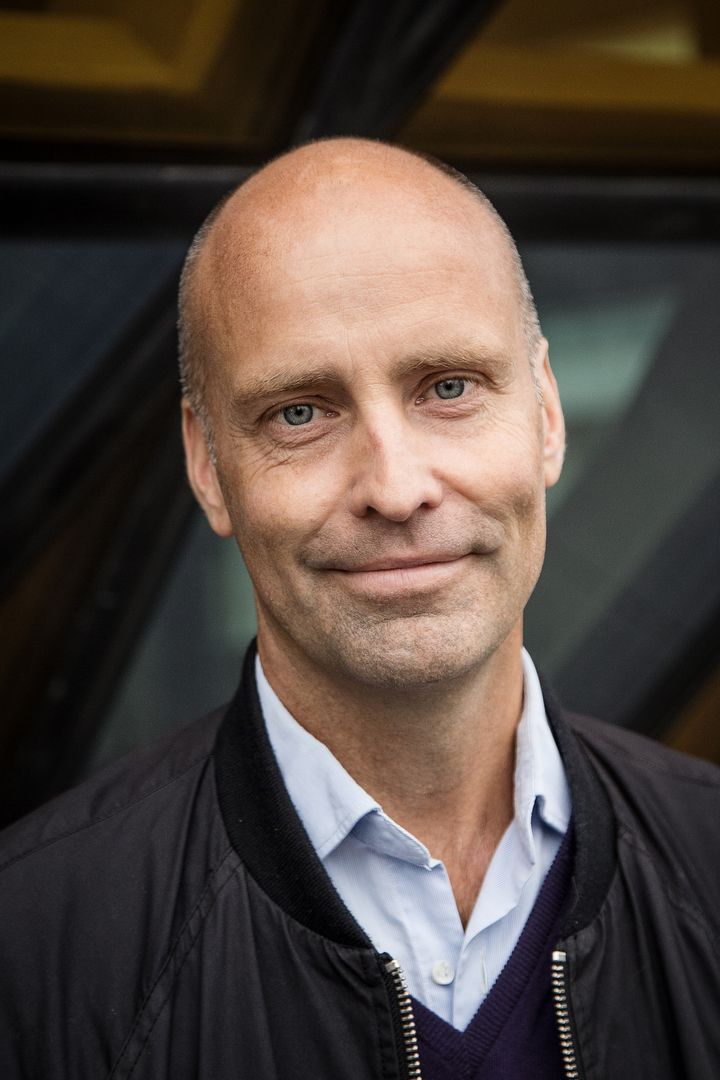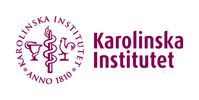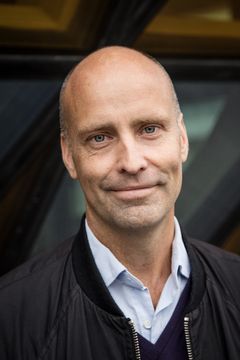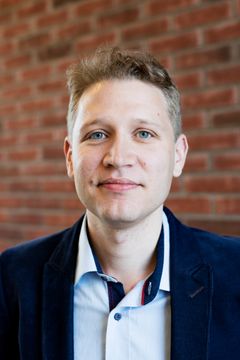Most heart muscle cells formed during childhood
New human heart muscle cells can be formed, but this mainly happens during the first ten years of life, according to a new study from Karolinska Institutet. Other cell types, however, are replaced more quickly. The study, which is published in the journal Cell, demonstrates that the heart muscle is regenerated throughout a person's life, supporting the idea that it is possible to stimulate the rebuilding of lost heart tissue.

During a heart attack, when parts of the heart muscle are starved of oxygen, many heart cells die and are replaced by scar tissue. As this impairs functionality, many researchers are interested in the possibility of stimulating the regeneration of lost heart muscle cells. But is it possible? This is one of the big questions of regenerative medicine, and scientists have long been trying to answer it, without arriving at a consensus.
To examine the regeneration of human heart cells, the team behind this new study used a combination of methods. One such was to measure the radioactive isotope C-14, exploiting the sharp rise in atmospheric levels of carbon-14 in the 1950s and 60s caused by nuclear testing. Levels then declined, which means that cells that were formed after that period give lower C-14 readings than those formed during it. Thus by measuring the amount of C-14 in a cell's DNA, the researchers were able to calculate its age.
”We examined the heart tissue from 29 deceased individuals of various ages and found that even by one month after birth, the heart contains the same number of cells as it has in adults,” says Olaf Bergmann from the Department of Cell and Molecular Biology.
According to the study, the heart grows during childhood because its cells increase in size rather than in number; in other words, heart cells are generated on only a modest scale, and even during a long life, only forty per cent of muscle cells are replaced.
The heart also contains other types of cell, such as endothelial cells and cells in the connective tissue that go under the collective name of mesenchymal cells. What the researchers found was that these cell populations change much more than the heart muscle cells. The endothelial cells have the shortest life-cycle, and in adults all such cells are exchanged over a six-year period. The mesenchymal cells are also replaced, but more slowly - twice during a lifetime estimate the researchers behind this new study.
”Our study shows that endothelial cells, mesenchymal cells and heart muscle cells are renewed in the human heart throughout life, albeit at a different rate for different cells,” says study leader Jonas Frisén from the Department of Cell and Molecular Biology. ”Our findings suggest that it can be rational and realistic to develop new therapeutic strategies for strengthening the body's own regenerative capacity to treat heart diseases.”
The study was financed with grants from the Swedish Research Council, the Heart-Lung Foundation, the Swedish Cancer Society, Karolinska Institutet, the Tobias Foundation, StratRegen, the Torsten Söderberg Foundation and the Knut and Alice Wallenberg Foundation.
View a video abstract about this research
Publication: 'Dynamics of cell generation and turnover in the human heart', Olaf Bergmann, Sofia Zdunek, Anastasia Felker, Mehran Salehpour, Kanar Alkass, Samuel Bernard, Staffan Sjöström, Mirosława Szewczykowska, Teresa Jackowska, Cris dos Remedios, Torsten Malm, Michaela Andrä, Shira Perl, John Tisdale, Ramadan Jashari,Jens R. Nyengaard, Göran Possert, Stefan Jovinge, Henrik Druid, and Jonas Frisén, publishing in Cellx June 18, 2015 issue, online first 11 June 2015.
Contacts
For further information, please contact:
Jonas Frisén, PhD, Professor
Department of Cell and Molecular Biology, Karolinska Institutet
Tel: +46 (0)8-52487562
Email: Jonas.frisen@ki.se
Olaf Bergmann, PhD, Assistant professor
Department of Cell and Molecular Biology, Karolinska Institutet
Tel: +46 (0)76-2404746
Email: Olaf.Bergmann@ki.se
To contact the Press Office and download images (http://ki.se/pressroom)
Images
Karolinska Institutet (http://ki.se/english) is one of the world's leading medical universities. Its vision is to significantly contribute to the improvement of human health. Karolinska Institutet accounts for over 40 per cent of the medical academic research conducted in Sweden and offers the country´s broadest range of education in medicine and health sciences. The Nobel Assembly at Karolinska Institutet selects the Nobel laureates in Physiology or Medicine.
Subscribe to releases from Karolinska Institutet - English
Subscribe to all the latest releases from Karolinska Institutet - English by registering your e-mail address below. You can unsubscribe at any time.
Latest releases from Karolinska Institutet - English
New method reveals how the brain and inner ear are formed3.4.2025 20:00:00 CEST | Pressmeddelande
Researchers at Karolinska Institutet have developed a method that shows how the nervous system and sensory organs are formed in an embryo. By labelling stem cells with a genetic ‘barcode’, they have been able to follow the cells’ developmental journey and discover how the inner ear is formed in mice. The discovery, published in Science, could provide important insights for future treatment of hearing loss.
Fluoride in drinking water is associated with impaired childhood cognition7.3.2025 15:30:00 CET | Pressmeddelande
Elevated concentrations of fluoride can occur in well water, and in some countries, it is added to drinking water to counteract caries in the population. A study from Karolinska Institutet in Sweden now supports a few previous studies indicating that exposure to fluoride during the fetal stage or early childhood may impair cognition in children. The study is published in the journal Environmental Health Perspectives.
Children with ARFID face increased risk of disease17.2.2025 17:00:00 CET | Pressmeddelande
Children with avoidant restrictive food intake disorder (ARFID) have an elevated risk of developing psychiatric and physical conditions, a new study from Karolinska Institutet published in JAMA Pediatrics reports. The study highlights the importance of early identification to improve care of these children.
Preterm babies receive insufficient pain management27.1.2025 15:29:17 CET | Pressmeddelande
A large proportion of babies born very early need intensive care, which can be painful. But the healthcare system fails to provide pain relief to the full extent. This is shown by the largest survey to date of pain in neonatal care, now published in the journal Pain.
New study paves way for immunotherapies tailored for childhood cancers20.1.2025 17:00:00 CET | Pressmeddelande
Researchers at Karolinska Institutet and the Astrid Lindgren Children’s Hospital in Sweden have determined how children’s immune systems react to different kinds of cancer depending on their age. The study, which is published in the journal Cell, reveals significant differences between the immune response of children and adults, and has the potential to lead to new tailored treatments for children with cancer.
In our pressroom you can read all our latest releases, find our press contacts, images, documents and other relevant information about us.
Visit our pressroom

